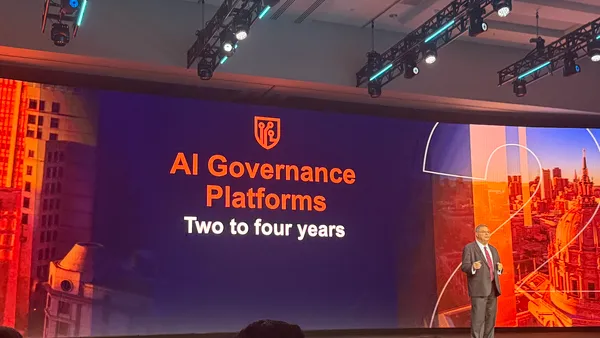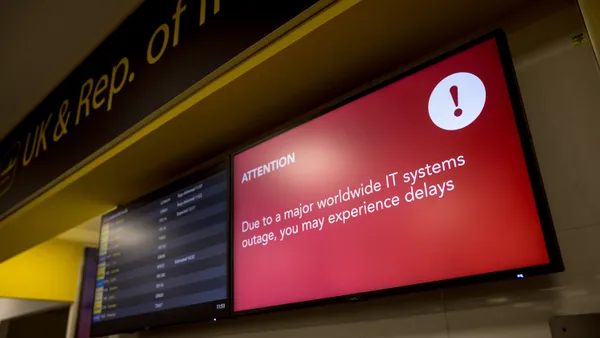Companies struggle to scale low code — an obstacle stalling more ambitious transformation goals. But the technology has struggled to hit mainstream in the enterprise context.
Forty-one percent of companies currently use a low-code platform, according to data from OutSystems. And while Gartner expects low code will power nearly two-thirds of all application development in the next three years, current use of low-code is primarily happening in IT
Low code technology proponents say the technology can help with fast prototyping, leveraging domain expertise from business users to quickly iterate digital products. But in order to scale low-code programs and fuel efficiency, companies need to take a digital-first approach to their operations, said John Bratincevic, senior analyst at Forrester, speaking Wednesday on a panel at the Low-Code Marathon hosted by Creatio.
"Reflexively, as a cultural attribute, you should turn things into software," said Bratincevic. "That should be simply how business is done."Companies that rely on Excel and email are "passing around spreadsheets, updating cells and sending each other emails" to advance processes.
"That's not digital,"said Bratincevic."At best, that's a poor analog metaphor."
Low code programs can introduce more digitization into company operations, but employees need to instinctively create software applications and fix the bottlenecks they face.
A roadmap for scaling
Growing in-house low code skills is a critical first step toward bringing applications built with the technology to scale, touching more processes within the organization.
A lack of experience with low-code platforms is the top obstacle hampering the technology's deployment at scale, according to a survey published by Creatio. Low code work is siloed in IT, with only 6% of low code work happening solely by business users, without involvement from IT workers.
"Building low-code apps is still totally foreign to most people, which means they won't even recognize opportunities to do so when they come up," said Dan Robinson, CTO at Heap, in an email.
Hackathons, or other avenues for joint work between business and IT workers can help expose wary employees to the technology, in an environment conducive to experimentation.
"Enablement efforts should focus on getting people to their first low code win," Robinson said. "Once you do that, people's desire for better tools will take over."
Spreading low code's potential as a problem-solver can also contribute to more adoption.
Teaching people what the technology is capable of will lead to workers who "think of technical-driven solutions instead of manual solutions," said Bratincevic. But not all companies need to follow the same formulas. Bratincevic shared three roadmaps to expand citizen developer programs within the enterprise:
-
Equipping small, ultra-lean teams to advance quickly on low-code projects with little support from IT. They will self-prioritize applications and report up to a business unit.
-
A more democratic model where there's complete self-service, and workers who interact more closely with a process are encouraged to digitize or automate processes under a self-service-like model.
-
A federated model under which a center of excellence unit builds platforms, trains and places departamental champions. Products that emerge from this framework are more variable and complex.
No matter the approach, there must be harmony between the policies and processes and the roll out of the technology, according to Stephen Ehikian, co-founder and CEO of Airkit.
"A low-code platform needs to support your internal policies and processes in both engineering and the line-of-business," said Ehikian in an email.
In reviewing a vendor, Ehikian suggests companies gauge whether a platform supports engineering processes such as continuous integration and user acceptance testing, while also handling business requirements such as standardized branding and code libraries, role-based permissions, reporting and analytics.
"Unless low-code platforms can do this, they can’t really support enterprise requirements," said Ehikian.













